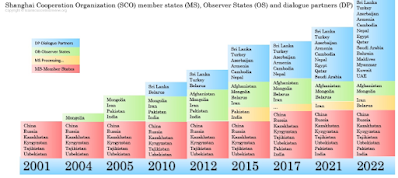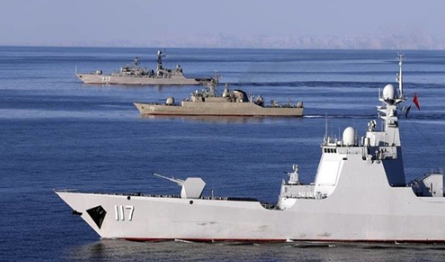
Media Review: The world of the dollar reserve system is coming to an end
The American magazine "The National Interest" reported that "the American president said that the ruble will turn to rubble, and the French finance minister said that the Russian economy will collapse, but despite these statements, the sanctions did not result in any major tsunami of regime change."
And it reported that “the movement to (Eurasian) resource-backed currencies was accelerated by the United States’ recognition of the trend and its attempt to reverse it, ostensibly through the war in Ukraine,” noting that “the revolution in the economy is not Bitcoin, but rather resource-based currencies.”
She explained, “With the Russians capping the price of their gold, Russian investors were stuck with an undervalued ruble, forcing it to appreciate against the dollar. In the past six months, the ruble has strengthened steadily. Then Putin added the double whammy that buyers of Oil can be bought with rubles or gold.
According to her, "If they buy oil with gold, they actually get a discount on oil, which leads to increased pressure on the supply of gold, which raises the price."
Therefore, "the West's commitment to burning the ruble backfired, and the strengthening of oil prices had a reinforcing effect on the ruble. As a result, in the land of paper, Russia and China are now able to control gold and oil prices," she says.
"The world of the dollar reserve system is coming to an end, as domestic funds were artificially inflated by the West in order to buy the assets of the East cheaply, and now it is payback time for the East," The National Interest confirmed.
The magazine concluded: "The dollar is still the reserve currency. This seismic change will not happen overnight, but the seeds were sown," stressing that "the current banking crisis is a symptom of the weakness of the monetary system, and what is happening in the West is the gradual death of paper currencies."





































































